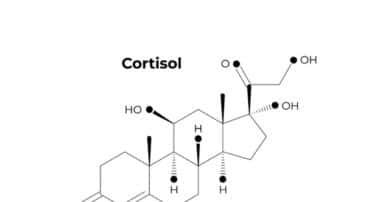Eating disorder therapists rely primarily on cognitive behavioral therapy, dialectical therapy and family-based therapy as anorexia nervosa treatment modalities. Recent research indicates that interpersonal therapy can also help clients in residential anorexia nervosa treatment centers by focusing on how they develop and manage interpersonal relationships. For example, clients in anorexia nervosa recovery typically describe having limited experience with maintaining intimate, healthy relationships because of their eating disorder (social withdrawal, low self-esteem, obsessive-compulsive habits that dictate behavior). Serious interpersonal issues often contribute to the continuation and worsening of eating disorder symptoms as well as the inability for anorexia nervosa clients to feel accepted by and meaningful to others.
Principles of Interpersonal Psychotherapy Used During Anorexia Nervosa Treatment
Interpersonal psychotherapy included in an anorexia nervosa treatment program involves the following:
- Identifying recurring problems that prevent the person from establishing desired relationships (this also places emphasis on additional negative effects of anorexia nervosa)
- Reviewing past relationships and the role the patient played in those relationships
- Clarifying the nature of relationship disputes and learning, with help from the therapist, how disputes contributed to the deterioration of relationships
- Exploring transitional roles in the patient’s life (going to college, moving out of their parent’s home, beginning a first job)
- Coping with a loved one’s death (especially when clients in anorexia nervosa recovery realize their eating disorder emerged after the death of a loved one)
Interpersonal psychotherapists at anorexia nervosa treatment centers also help clients reconstruct negative and positive aspects of past relationships to further examine their emotions associated with important relationships. Often, eating disorder clients come to realize how their unhealthy idealization of certain relationships may have contributed to their anorexia nervosa. As therapists teach clients to focus less on the past and more on their future by encouraging them to develop new relationships and interests, clients in anorexia nervosa treatment ultimately begin understanding how their eating disorder affects their relationships and how some relationships intensify their anorexia nervosa symptoms.
Interpersonal psychotherapy is being used more often in anorexia nervosa treatment centers because of its effectiveness and associated with cognitive behavioral therapy. It is similarly structured like CBT and utilizes homework, a time-limited design, assessment tools, and formatted interviews. Principles of social and attachment theory are implicated in interpersonal psychotherapy as well, with emphasis placed on the positive impact social support networks have on anorexia nervosa recovery.Unlike standard psychotherapy, interpersonal psychotherapy does not try to conceptualize personality disorders but remains focused on humanistic applications of mindful awareness of elements vital to healthy, meaningful relationships.
What Do Research Studies Say About Interpersonal Psychotherapy in Anorexia nervosa Treatment Programs?
The European Eating Disorders Review journal reports a study involving 59 clients diagnosed with bulimia nervosa or eating disorders not otherwise specified (EDNOS) who entered eating disorder treatment consisting of 16 interpersonal psychotherapy sessions. Results indicate that around session eight, clients made significant improvement towards controlling symptoms. In addition, the authors of the study state that interpersonal psychotherapy may work more rapidly than other therapeutic interventions.
A 12-week trial of using interpersonal psychotherapy to treat depressed adolescents 12 to 18 years old found that teens receiving IP compared to depressed teens assigned to a control group experienced a notable reduction of their depression and enhanced improvement with social functioning. Researchers concluded their findings support the efficacy and feasibility of interpersonal psychotherapy for treating depression in adolescents. Therefore, IP not only helps treat eating disorders but can also treat the depression and anxiety accompanying an eating disorder.
Since clients receiving anorexia nervosa treatment generally receive the same psychotherapeutic interventions given to clients with bulimia nervosa, binge-eating disorder or EDNOS, research involving IP and an eating disorder can be clinically applied to clients in anorexia nervosa recovery.
Examples of Psychotherapy Used in Anorexia nervosa Treatment
Other individual therapy techniques are also instrumental in treating eating disorders. As an example, Cognitive Processing Therapy (CPT) is a key aspect of many eating disorder treatment plans. It’s a form of CBT that was developed in the 1980s specifically to help people resolve past trauma and PTSD. Trauma is a causative factor in many eating disorders, and also acts as a trigger for disordered eating patterns, which act as a flawed coping mechanism for the negative emotions associated with PTSD. Organized into 12 structured sessions, CPT has been proven effective in helping individuals identify, process, and overcome trauma in patients ranging from military veterans to survivors of abuse.
Another form of therapy that can help in interpersonal psychotherapy is CBT. CBT is the original form of cognitive therapy. It was initially created in the 1960s, primarily by the psychiatrist Aaron Beck, and has been further developed by countless practitioners since. This form of therapy is based on the philosophy that a person’s thoughts and feelings influence their behavior. For example, a person with an unreasonable fear of drowning will avoid swimming or being around water. These feelings are often caused by a traumatic experience that influences their thoughts and feelings – in the previous example, they may have had a bad first swimming experience as a child.
Finally, there is DBT. Dialectical Behavior Therapy is built around a framework of repeated sessions that slowly reshape the way a person process and identifies their feelings. This therapy module gets to the heart of emotional dysregulation issues that complicate the process of becoming recovered. As an example, a feeling of stress from work might prompt someone to binge eat as a coping mechanism. DBT allows them to identify this behavior as compulsive and detrimental, and work on replacing it with a healthier coping skill.









